One of my favorite business quotes is, “What are the seven most expensive words in business? We’ve always done it that way.” I love it because it reminds me that inertia is very powerful and that we should always be on the lookout for new and improved ways of doing things. I can’t imagine a better example than our persistent reliance on faxing records.
I know some world-class referral hospitals with MRI machines, state-of-the-art endoscopy, and a commitment to staff training that is beyond compare… and they’re still faxing records. Something there just doesn’t add up. We do a great job in this profession of staying current on medical technology but overall we have done a pretty terrible job of staying current on communication technology.
The point of this blog is to help colleagues understand that not only is faxing (and it’s kissing cousin, email) far more time-consuming than most veterinary practice managers realize, but also that there are better ways of sharing information.
Would it surprise you to learn that the average general practice spends 25% of their time sharing records with other hospitals/insurance companies/ specialists? In ER/specialty hospitals, the percentage is probably closer to 30. Boarding kennel calling for shot records? Cardiologist calling for three years of complete medical records? Insurance company calling for records? The cardiologist calling back because they didn’t get the entire record or all the information they needed? Or the boarding kennel calling back because the records never went through and can you please resend them? Sound familiar?
Your front desk team is arguably the most important team members in your hospital, and these folks have better things to be doing with their time than faxing records. Additionally, you can no longer afford to have them spending two hours out of every eight-hour shift essentially shuffling papers back-and-forth. 20 years ago we couldn’t do anything about this, but now there are technology tools that simplify record sharing while giving you control over what get shared. It’s not 1985 anymore!
Here is a short list of just three things that your team could be doing if they had those two hours a day back.
1) Concierge service
There are a lot of handoffs in a veterinary practice. A client walks in the door and they are greeted by a client service representative. They are then often handed off to a technician to bring them back in a room. Then a doctor plays his or her part, followed by a technician finishing up the exam and handing the client back off to check-out. That’s a lot of moving parts and it’s easy for clients to get lost in the shuffle.
The job of the concierge is to keep things moving. Busy pet owners don’t want to spend an hour at your hospital if they can avoid it. This person’s job is to make sure the clients are happy, feeling engaged, ensuring they have something to drink and, most of all, making it clear that they have not been forgotten.
2) Update your website and social media
Your website and social media should not be ”set it and forget it”. It needs to be a living document that is updated regularly. If each of your front desk team members had another two hours per shift, imagine the impact you could make here?
3) Monitor your email/text accounts
As I’ve written before, consumer preference is moving away from the telephone. Unfortunately, veterinarians are about 10 years behind in this regard and it’s impacting your practice revenue. You would never leave a client on hold for an hour, so why would you let one of their emails go unanswered for an hour?
Additionally, how many multibillion-dollar businesses have been built on the idea the people like to text and share pictures through their smart phone? Can your clients do that if they want? After all, Dr. Google is just an outgrowth of people’s desire for instant gratification. While you may not be able to get them answers literally instantly, clients expect timely answers to their questions and they don’t always want to pick up the telephone to call you.
Why not? First of all, there’s a pretty good chance to get put on hold, and 30% of Americans won’t wait on hold at all anymore. Even if they don’t get put on hold there’s a fair chance that the person answering the phone will not be able to answer their question, thereby necessitating a follow-up phone call for your already overworked team. These are the conversations that are perfect for text, especially so with picture sharing.
Veterinary medicine is getting much more competitive at the same time our clients are being getting accustomed to better and better (i.e. closer and closer to real time) client service. Your client service representatives simply can’t do all of this: something has to give.
One of the reasons we started VitusVet was to facilitate record sharing literally while your CSR is still on the phone with the requester. We can help you put those two hours/employee/shift back in your virtual pocket so you can redeploy them for other more high-value tasks. Isn’t that a no-brainer?
 by a veterinarian
by a veterinarian


